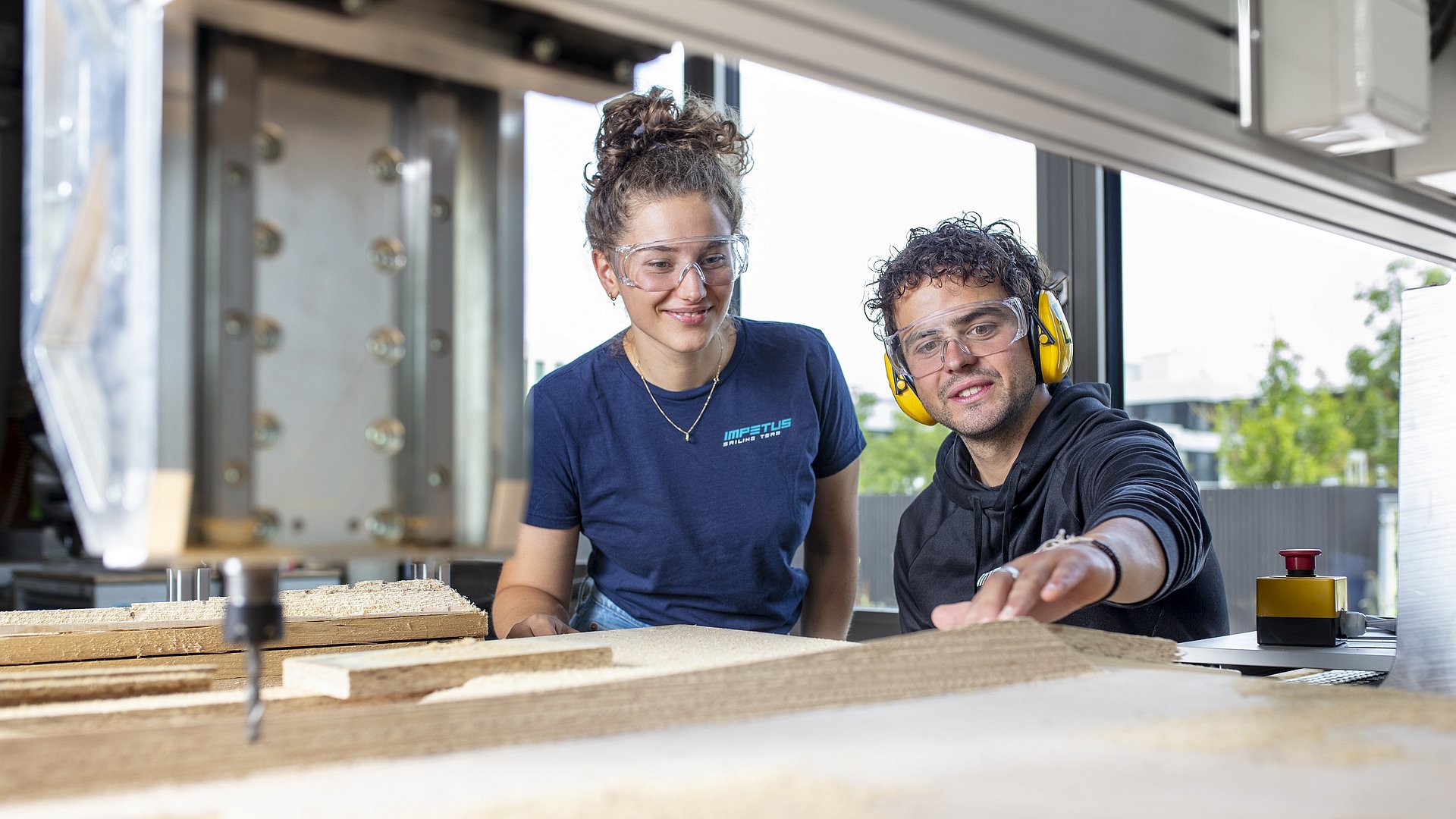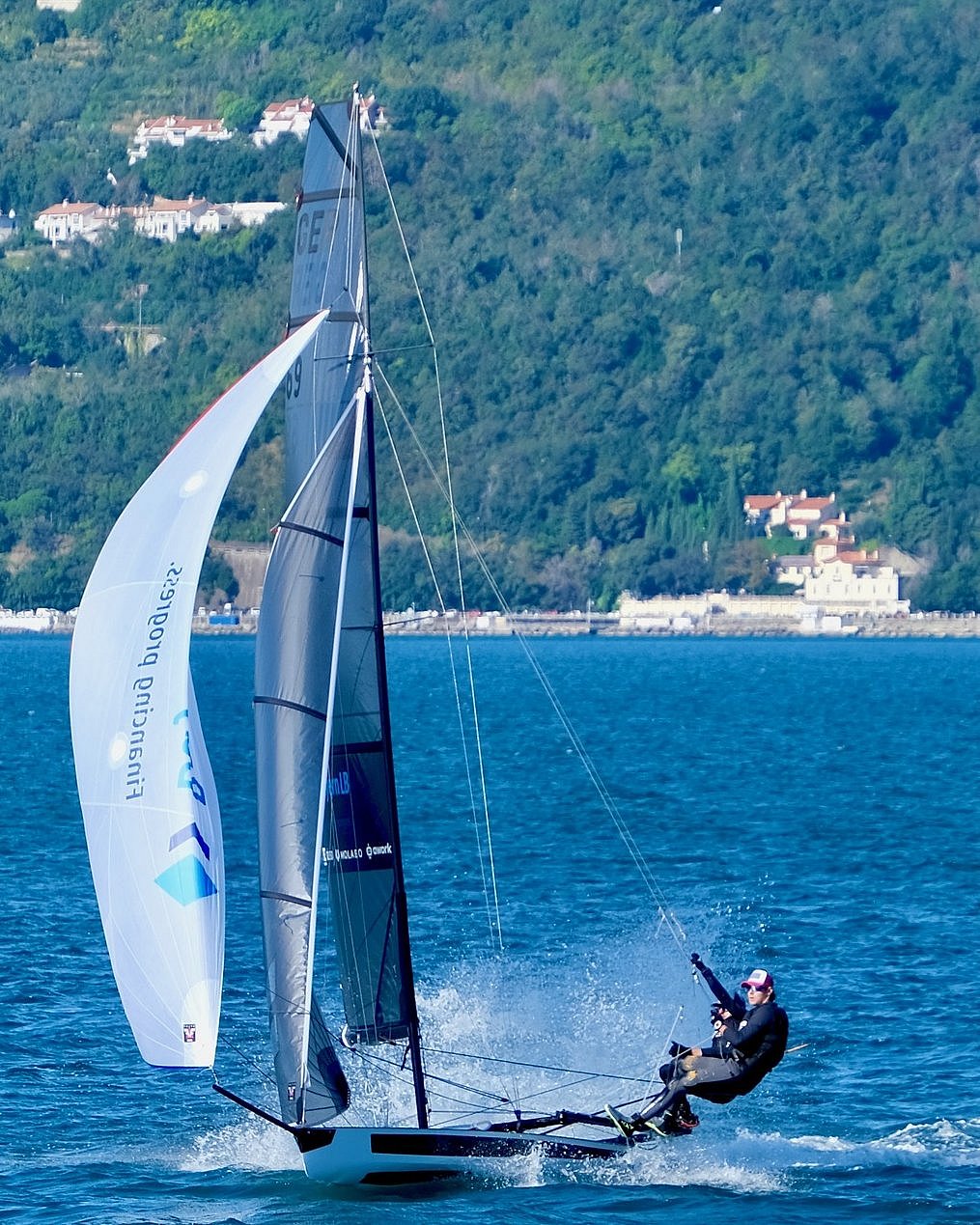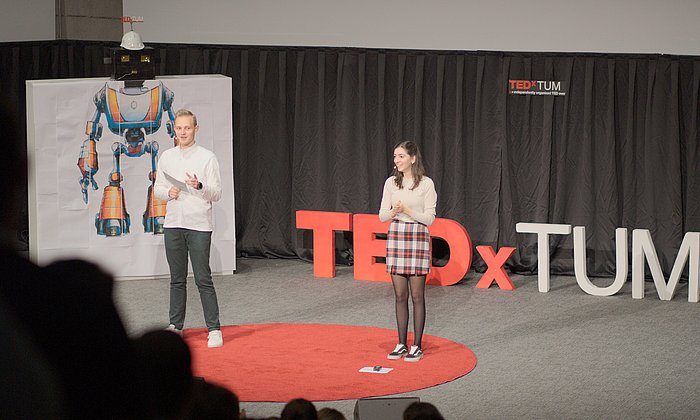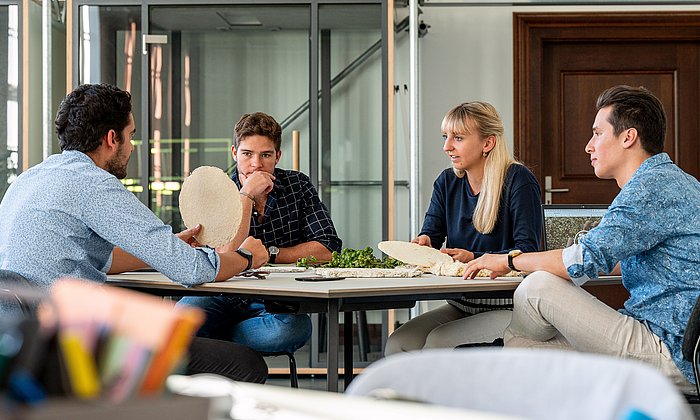Student club Impetus
With the wind at their backs

A bang, a lurch, then both sailors are overboard: The rudder is broken and bent in two places. Perpendicular to the boat's course, the broken board catches the water and puts a sudden end to the race through the Mediterranean. The boat belonging to the student initiative Impetus has to be towed back to the harbor at Trieste before the Cup race even starts.
In September every year student sailing teams from throughout Europe compete against one another in the 1001VelaCup in Italy. The most important requirement in qualifying for the Cup: The hulls of the small boats have to consist of at least 75 percent recyclable materials or natural fibers. TUM students took part in the race for the first time in 2024: The Impetus team joined the contest for the fastest and most sustainable sailboat with the skiff "Schickeria", which they designed and built themselves.
That Impetus team would like to grow in winter semester 24/25. Participation is open to students from all Munich universities.
Conventional sailboats are made of fiberglass-reinforced plastic with epoxy resin. "This material is extremely easy to shape and work with," says Tim Raible, one of the sailors and a student in the Master's program in Management and Technology at TUM. "However, there are no wide-scale recycling methods, the best you can do with it after its end of life is shred it and use it as filler material."
When designing their boat the students wanted to go even one step further towards sustainability: They combined basalt fibers with a recyclable resin. The advantage: The components can be separated, melted and then reused. The students were also sure to look for alternatives during construction: Instead of milling a negative mold from a giant block of plastic, generating large amounts of waste in the process, the team decided in favor of a 3D-printed model for the hull of the boat. For the time being, the materials used are still more expensive than the alternatives, the design principle is more complicated and the hull can't be recycled practically. "But we want our prototype to demonstrate the possibilities in boatbuilding when it comes to closed-loop recycling," says Tim.
The dream of a sustainable sailboat
The idea of a sustainable sailboat originated with Benjamin Wittmann. While conducting a tour of the MakerSspace, a high-tech workshop of UnternehmerTUM in Garching, where the Impetus sailboat is currently taking shape, Benjamin recalls travelling the coasts of Europe in his parents' sailboat as a child. At the age of only seven Benjamin took his first sailing course on Lake Starnberg near Munich. "I always wanted to build my own boat, I had no interest in rockets or racecars whatsoever," he says.
After earning his Abitur (Baccalaureate), Benjamin decided to study mechanical engineering at TUM. Since then, he has been turning the dream of his own racing boat into a reality – at more as a hobby, as he says. Realizing that he wouldn't be able make any more progress alone, he contacted the TUM Chair of Carbon Composites. Academics at the Chair provided Benjamin with specialized support, and also suggested to him that he launch a student initiative. Using social media he found interested colleagues, and in the summer of 2023 the sustainable sailboat project was ready to leave port.
Today, around 50 students from a variety of disciplines are working on the Impetus project: The participants do everything themselves, from the design work to the search for the best fibers and 3D printing of individual components, all the way to woodwork for the hull. During the weeks before the start of the Velacup in Trieste, they worked at the MakerSpace almost every day, despite of the pressure of exams. When the wind at Lake Starnberg was right, they practiced for the race.
One of the initiative's participants is Laura Drexler, currently in the Master's program for Aerospace at TUM. Working in an Impetus team, she generated a detailed CAD model for the boat's hull and investigated various load cases using Finite element analysis. Based on the results, the students were then able to determine where bracing was necessary and where the mast and sail were to be anchored. "I think it's incredibly cool to work on a project like this and to learn so many new things," says Laura. "Now looking at the finished boat, it's fascinating to see what we've created together, starting from scratch."
New designs instead of just repairs
Experiment, tinker, accept failures – all part of the job when working on Impetus. Even when the rudder broke at the 1001VelaCup, the team wasn't discouraged: "We did more than just repair the parts, we started over and completely redesigned them to repair the defect. We laminated the 3D-printed parts with our composite material, making it possible to quickly and accurately build even complex geometries," Tim says after the competition.
Ultimately the Impetus students finish fifth among nine competitors. "The boat was very fast, especially when the wind was strong, and it felt good and solid," says Tim. He's satisfied, even if the team didn't manage to come in first: "We came to the starting line with a boat that was an entirely new construction. The teams that finished ahead of us have already been working on their boats for several years."
As a reward for all their efforts, after the competition the students will spend a week on Mallorca – sailing, of course. And after the well-earned break, the sustainable sailboat project will continue in the winter semester: "We want to participate in another student sailing competition, this time for sustainable foiling boats", says Tim. "And, of course, that means we'll be building another boat."
- The student initiative Impetus has been supported by the Freunde der TUM e.V., the TUM Association of Alumni and Friends. Join the Association and promote young academic talent at TUM!
- An article from the first issue of the new TUM Magazine.
This article was published in the 01/2025 issue of the new TUM Magazine.
Technical University of Munich
Corporate Communications Center
- Undine Ziller
- undine.ziller@tum.de
- presse@tum.de
- Teamwebsite



